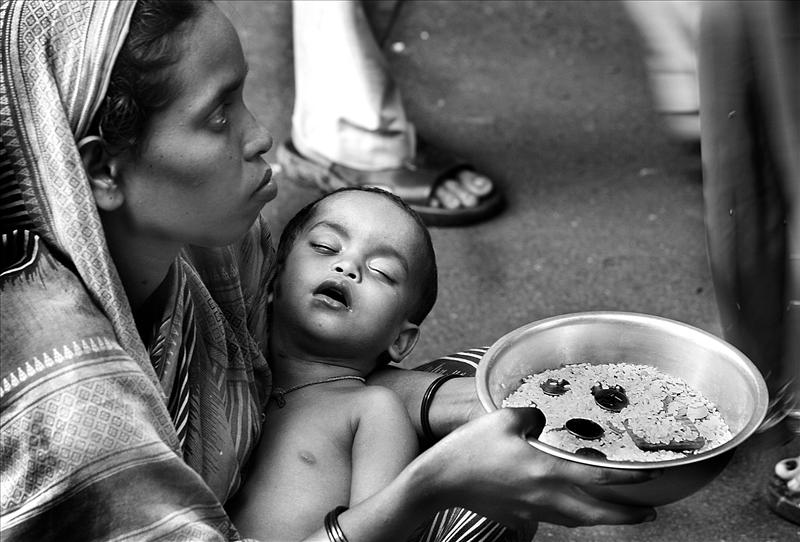
 Vikas Parchhanda is the CEO of Akshaya Chaitanya.
Vikas Parchhanda is the CEO of Akshaya Chaitanya.
Despite the nation’s economic growth, India is experiencing a significant hunger crisis, with millions of adults and children facing challenges in obtaining sufficient nutrition. Contributing factors include poverty, food wastage, and inequitable distribution, which have led to alarmingly high rates of malnutrition, particularly among the youth. This situation has emerged as an urgent concern. To effectively combat hunger, it is essential to implement efficient food distribution systems that will safeguard the children’s future and enable them to thrive.
Hunger remains a critical issue in India, with a significant proportion of the population, particularly children, facing malnutrition. The country reports one of the highest numbers of undernourished individuals globally, with many struggling to access adequate nutritious food daily. This scenario heightens the risk of various diseases, allergies, and infections. According to the 2024 Global Hunger Index, India ranks 105th out of 127 countries, indicating a severe hunger crisis, with approximately 13.7 per cent of the population classified as undernourished. Furthermore, nearly 36 per cent of children under the age of five experience stunting, underscoring the urgent necessity for enhanced nutrition and food security initiatives. These statistics are concerning and warrant immediate and focused intervention.
Hunger Crisis: A Major Concern in India
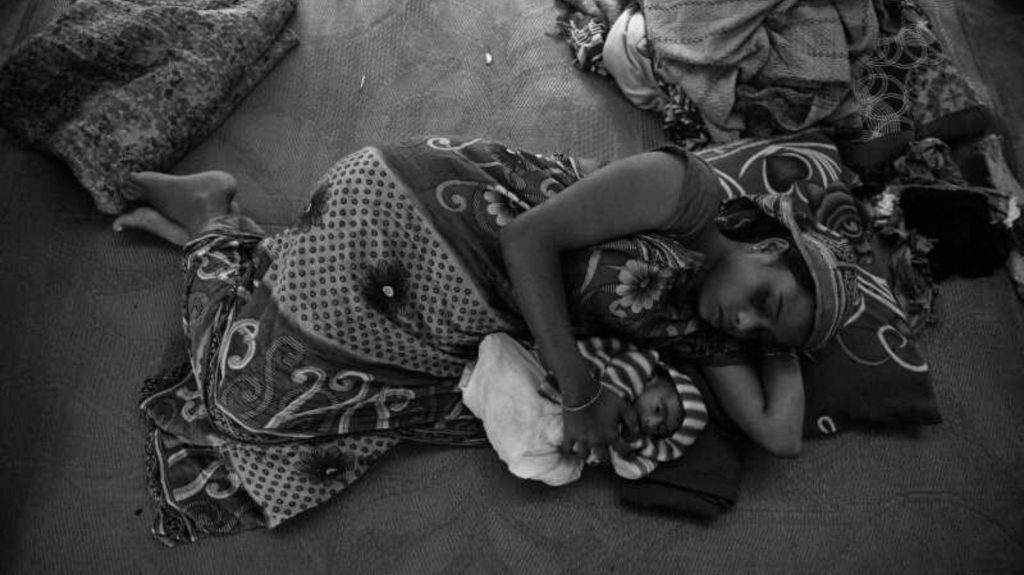 Assistance often fails to reach India’s poorest and most needy regions due to logistical challenges, corruption, and inefficient distribution systems, which should be prioritised now. Remote areas struggle with inadequate infrastructure, making it difficult to deliver food and resources effectively. As a result, many people lack access to basic food requirements, leaving families unable to feed themselves. Malnutrition, particularly in children, is commonly observed when they are inadequately fed. Hunger impacts not only a child’s physical health but also their mental and cognitive development.
Assistance often fails to reach India’s poorest and most needy regions due to logistical challenges, corruption, and inefficient distribution systems, which should be prioritised now. Remote areas struggle with inadequate infrastructure, making it difficult to deliver food and resources effectively. As a result, many people lack access to basic food requirements, leaving families unable to feed themselves. Malnutrition, particularly in children, is commonly observed when they are inadequately fed. Hunger impacts not only a child’s physical health but also their mental and cognitive development.
While cities promise economic potential, they also expose migrant families to food insecurity. This impact is especially severe on low-income groups and daily wage workers, who struggle to meet their basic nutritional needs. These labourers work long hours in physically demanding jobs, often leaving home early to earn just enough for that day. Consequently, their children frequently go to school on an empty stomach, making it difficult for them to concentrate or perform academically.
 Moreover, rapid urbanisation, particularly in cities like Mumbai, has led to an influx of people from rural areas seeking livelihood opportunities. While cities promise economic potential, they also expose migrant families to food insecurity. This impact is especially severe on low-income groups and daily wage workers, who struggle to meet their basic nutritional needs. These labourers work long hours in physically demanding jobs, often leaving home early to earn just enough for that day. Consequently, their children frequently go to school on an empty stomach, making it difficult for them to concentrate or perform academically. With food inflation and the rising cost of living, even securing one nutritious meal a day has become a challenge for many families, exacerbating the malnutrition crisis among urban poor children.
Moreover, rapid urbanisation, particularly in cities like Mumbai, has led to an influx of people from rural areas seeking livelihood opportunities. While cities promise economic potential, they also expose migrant families to food insecurity. This impact is especially severe on low-income groups and daily wage workers, who struggle to meet their basic nutritional needs. These labourers work long hours in physically demanding jobs, often leaving home early to earn just enough for that day. Consequently, their children frequently go to school on an empty stomach, making it difficult for them to concentrate or perform academically. With food inflation and the rising cost of living, even securing one nutritious meal a day has become a challenge for many families, exacerbating the malnutrition crisis among urban poor children.
Factors Contributing to Hunger Crises in India
Poverty and Inequality: Although there has been a gradual decline in poverty rates, a considerable segment of the population still exists below the poverty line, severely restricting their access to adequate nutrition. This economic constraint means many individuals are unable to fulfill their basic caloric needs, resulting in a pervasive state of food insecurity.
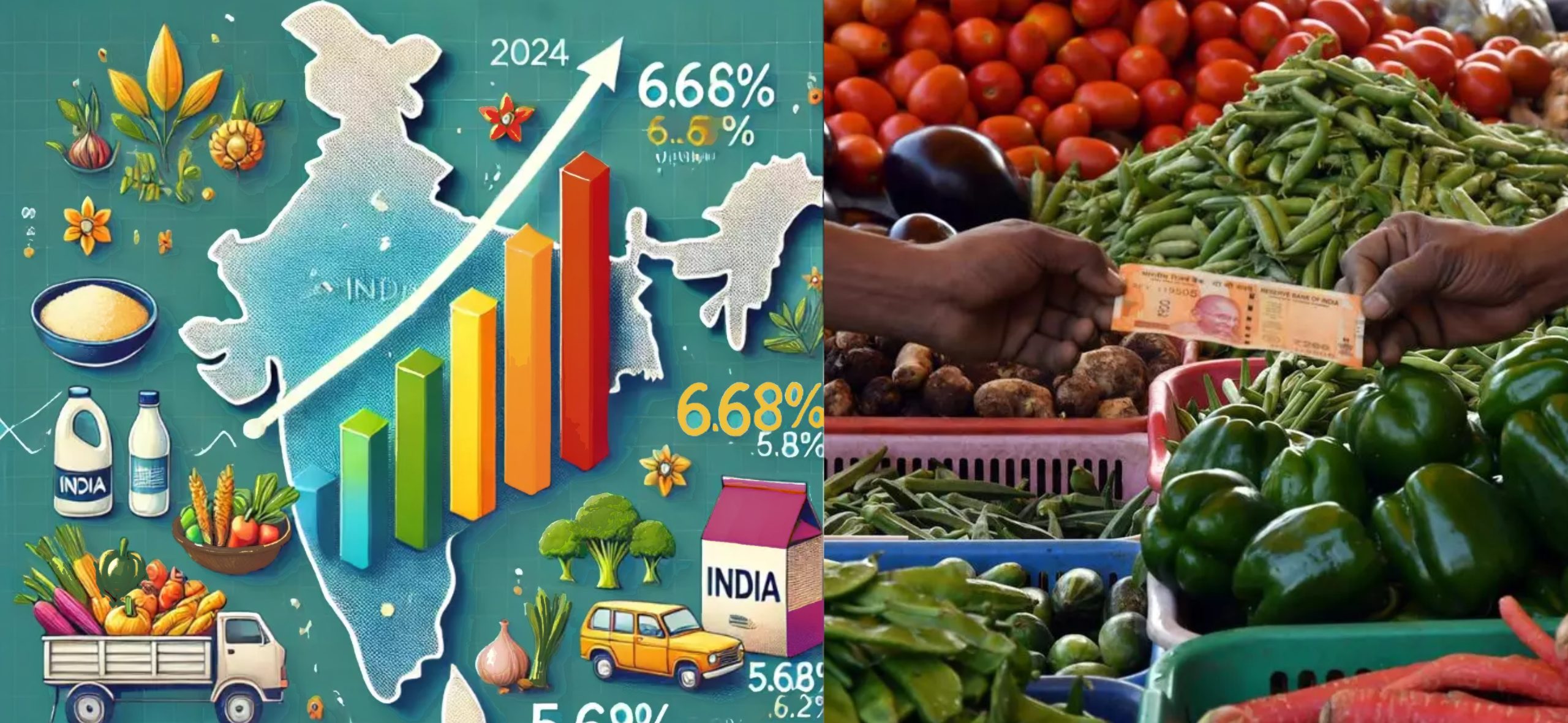 Escalating Food Prices: The upward trajectory of food prices disproportionately impacts low-income households, which allocate a significant percentage of their income toward food expenditures. This economic burden exacerbates food insecurity, compelling many families to reduce their food intake. Addressing the issue of food affordability is essential to ensure equitable access to nutritious options.
Escalating Food Prices: The upward trajectory of food prices disproportionately impacts low-income households, which allocate a significant percentage of their income toward food expenditures. This economic burden exacerbates food insecurity, compelling many families to reduce their food intake. Addressing the issue of food affordability is essential to ensure equitable access to nutritious options.
Agricultural Challenges: While India has achieved self-sufficiency in grain production, its agricultural sector faces substantial hurdles due to climate change, water scarcity, and land degradation. These factors critically undermine agricultural productivity, influencing food availability and ultimately limiting the capacity of a large portion of the population to meet their nutritional needs daily.
Empirical research indicates that malnourished children experience a staggering 68 per cent decline in academic performance relative to their adequately nourished counterparts. Optimal nutrition is requisite for sustaining cognitive alertness and engagement in educational settings. Insufficient food intake detrimentally affects concentration, participation in classroom dynamics, and overall academic achievement, increasing the risk of underperformance and school dropout rates. Consequently, this creates barriers to accessing superior educational and employment prospects in the long run.
Impact of Hunger and Malnutrition on Child Development and Health
Health Consequences: Inadequate nutritional intake profoundly compromises a child’s immune response, elevating susceptibility to infections and various diseases. Numerous studies have demonstrated that malnutrition impairs immune function, resulting in an increased incidence of morbidity, diminished vitality, and potential for severe health outcomes. This vulnerability can lead to recurrent illnesses and long-term health complications, placing additional stress on healthcare systems.
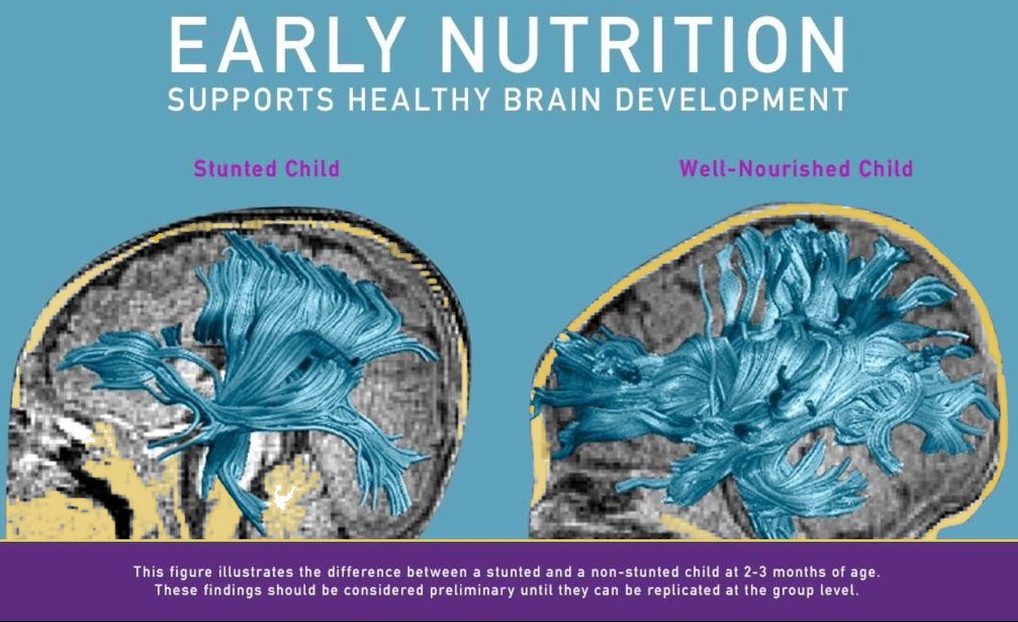 Cognitive Development: There is a strong correlation between malnutrition and impaired neurological development, adversely affecting cognitive processes such as memory consolidation, attention regulation, and problem-solving capabilities. Nutrient deficiencies during critical developmental windows can lead to substantial cognitive delays, inhibiting the ability to assimilate new information and acquire complex skills. These deficits often have lasting effects, persisting into later stages of life and hindering adult functioning.
Cognitive Development: There is a strong correlation between malnutrition and impaired neurological development, adversely affecting cognitive processes such as memory consolidation, attention regulation, and problem-solving capabilities. Nutrient deficiencies during critical developmental windows can lead to substantial cognitive delays, inhibiting the ability to assimilate new information and acquire complex skills. These deficits often have lasting effects, persisting into later stages of life and hindering adult functioning.
Academic Outcomes: Empirical research indicates that malnourished children experience a staggering 68 per cent decline in academic performance relative to their adequately nourished counterparts. Optimal nutrition is requisite for sustaining cognitive alertness and engagement in educational settings. Insufficient food intake detrimentally affects concentration, participation in classroom dynamics, and overall academic achievement, increasing the risk of underperformance and school dropout rates. Consequently, this creates barriers to accessing superior educational and employment prospects in the long run.
Government Interventions Addressing Hunger Crisis
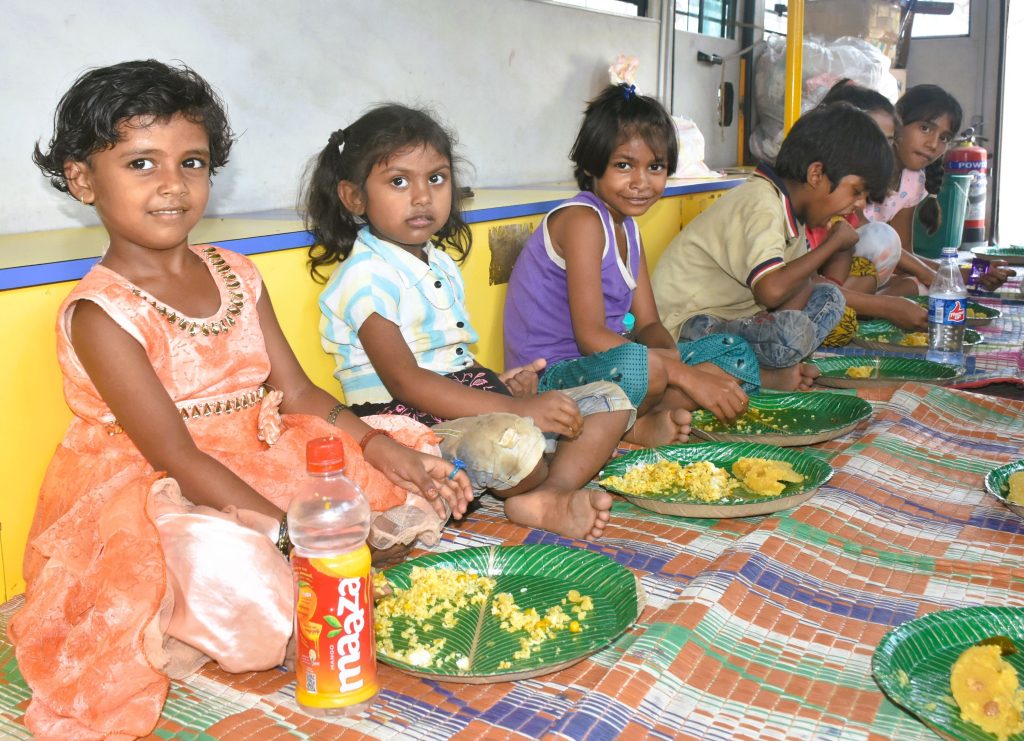 The Mid-Day Meal Scheme serves as a strategic intervention, delivering free meals to school-aged children to enhance nutritional status and promote school attendance. The Integrated Child Development Services (ICDS) programme encompasses a multifaceted approach by providing food security, essential healthcare services, and early childhood education for children under six and expectant mothers. Furthermore, the National Food Security Act (NFSA) aims to ensure that subsidised food grains are readily available to low-income households, thereby addressing the critical issue of food insecurity.
The Mid-Day Meal Scheme serves as a strategic intervention, delivering free meals to school-aged children to enhance nutritional status and promote school attendance. The Integrated Child Development Services (ICDS) programme encompasses a multifaceted approach by providing food security, essential healthcare services, and early childhood education for children under six and expectant mothers. Furthermore, the National Food Security Act (NFSA) aims to ensure that subsidised food grains are readily available to low-income households, thereby addressing the critical issue of food insecurity.
Akshaya Chaitanya’s Role in Combating Hunger and Malnutrition
Akshaya Chaitanya focuses on areas with significant needs that government efforts do not adequately address. Our initiatives target students in Grades IX and X, and Balwadis (preschools), providing essential support during these critical stages of education and early development. We are committed to combating hunger and malnutrition through various impactful programmes, successfully reaching 102 BMC schools.
Akshaya Chaitanya’s ZERO Classroom Hunger initiative plays a vital role in ensuring that over 8,000 children across 102 municipal schools in Mumbai receive nutritious meals, including breakfast and lunch. This programme has improved school attendance by up to 22 per cent, as well-nourished children can focus better on their studies and excel academically.
Eradicating Hunger and Malnutrition
Hunger and malnutrition pose major obstacles to the growth and future opportunities of underprivileged children in India. Children and families must have access to nutritional meals and educational opportunities. Now more than ever, we must strive for a future where every child in India has the chance to thrive.
Akshaya Chaitanya’s ZERO Classroom Hunger initiative plays a vital role in ensuring that over 8,000 children across 102 municipal schools in Mumbai receive nutritious meals, including breakfast and lunch. This programme has improved school attendance by up to 22 per cent, as well-nourished children can focus better on their studies and excel academically. Through the Swasthya Ahara programme, nutritious meals are provided to over 8,500 beneficiaries across 25 public hospitals and eight cancer care centres in Mumbai. This initiative has ensured that patients and their families maintain their health and has helped 2,72,000 unique patient families save ₹29.3 Crores on medication. By supplying these essential meals, caregivers receive support in staying healthy, allowing them to better care for their loved ones.
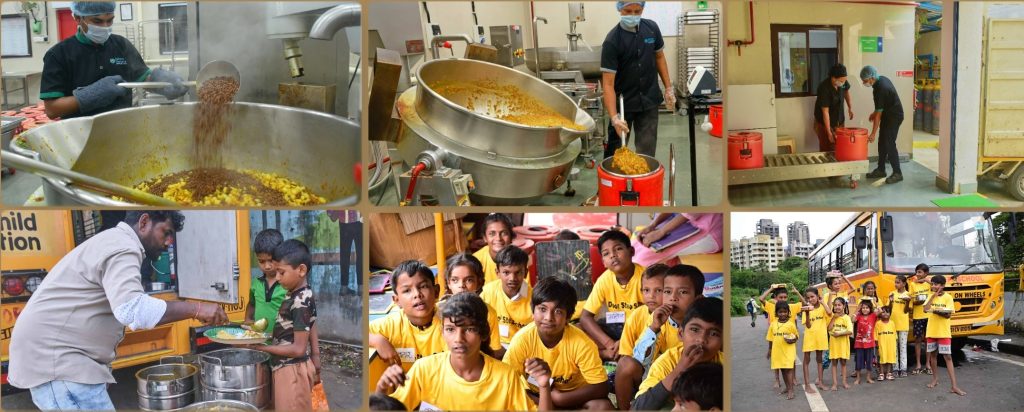
Furthermore, Akshaya Chaitanya runs informal education programmes in five slum areas in Mumbai, where more than 500 students have received informal education. In 2024, 51 of these students were successfully admitted to municipal schools, enabling them to continue their studies and break the cycle of poverty. Through these efforts, Akshaya Chaitanya aims to create a healthier, more educated, and empowered future for children and families in need. With our Bal Siksha programme, we have seen a 24 per cent improvement in attendance, and through Paushtik Ahara, 42 students have been enrolled in formal education.
Currently, Akshaya Chaitanya reaches over 18,000 beneficiaries, and intends to reach 1.5 lakh beneficiaries daily across Mumbai by 2026. Our mission is to transform Mumbai into a fortress of food security, ensuring that every citizen has access to safe, nutritious, and sustainable food. We will undertake more meaningful programmes, drives, initiatives, and campaigns to guarantee that everyone can access healthy food.

